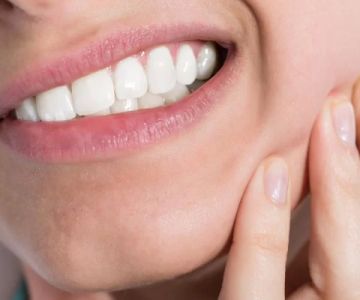Understanding the Causes of Bad Breath
Bad breath, or halitosis, is a common condition that affects many people worldwide. It can be embarrassing, and in some cases, it can affect your confidence and social interactions. But why does it occur? Let’s explore the main causes of bad breath and how they can be addressed effectively.
Poor Oral Hygiene
The most common cause of bad breath is poor oral hygiene. When you don't brush or floss your teeth regularly, food particles remain in your mouth, causing bacteria to thrive. These bacteria produce sulfur compounds that are responsible for the foul odor. Furthermore, the buildup of plaque on the teeth and gums can contribute to the problem.
It’s crucial to maintain a consistent oral hygiene routine, which includes brushing your teeth at least twice a day, flossing daily, and using mouthwash to kill bacteria. Don’t forget to clean your tongue as well, as it can harbor bacteria that contribute to bad breath.
Food and Beverages
Certain foods and drinks are notorious for causing bad breath. Garlic, onions, and spicy foods are common culprits, as they contain compounds that are absorbed into your bloodstream and exhaled through your lungs. Similarly, coffee and alcohol can lead to dry mouth, which exacerbates bad breath.
While you can’t avoid these foods entirely, you can reduce their impact by drinking plenty of water and chewing sugar-free gum to stimulate saliva production. After meals, it’s also a good idea to brush your teeth or rinse your mouth to remove lingering odors.
Medical Conditions
Bad breath can sometimes be a sign of an underlying medical condition. For example, dry mouth (xerostomia) is a condition in which the mouth doesn’t produce enough saliva to cleanse itself, which leads to the buildup of bacteria and foul odors. Other conditions like diabetes, gastrointestinal issues, and respiratory infections can also contribute to bad breath.
If you suspect that a medical condition is causing your bad breath, it’s essential to visit a healthcare professional for a diagnosis and appropriate treatment. Managing the underlying condition can often resolve the problem of halitosis.
Smoking and Tobacco Use
Smoking and using tobacco products not only stain your teeth but also contribute to bad breath. Tobacco dries out the mouth, reducing saliva flow and allowing bacteria to grow more easily. The chemicals in tobacco also leave a persistent odor that can linger long after smoking.
If you smoke, quitting is the best solution for improving both your overall health and your breath. If quitting is difficult, consider seeking help from a professional who can guide you through the process.
How to Eliminate Bad Breath
Now that we’ve explored the causes of bad breath, let’s look at effective ways to eliminate it. The good news is that with proper care and attention, bad breath can often be treated or prevented.
Regular Brushing and Flossing
As mentioned earlier, maintaining good oral hygiene is essential for preventing and treating bad breath. Brush your teeth with fluoride toothpaste at least twice a day, and don’t forget to floss to remove food particles and plaque between your teeth. Using a tongue scraper can also help remove bacteria from the surface of your tongue.
Stay Hydrated
Dry mouth is a common contributor to bad breath, so staying hydrated is essential. Drinking plenty of water throughout the day helps keep your mouth moist and wash away food particles and bacteria. Carry a water bottle with you, especially if you’re prone to dry mouth.
Eat Breath-Freshening Foods
Certain foods can naturally freshen your breath. Apples, carrots, and celery are all great options as they help clean your teeth and stimulate saliva production. Additionally, chewing sugar-free gum can help freshen your breath and improve saliva flow.
Regular Dental Check-ups
Visiting your dentist regularly for check-ups and cleanings is crucial. Your dentist can identify any potential dental issues such as gum disease or cavities that may contribute to bad breath. Regular cleanings help remove plaque and tartar buildup that can cause odor.
Use Mouthwash
While mouthwash can provide temporary relief from bad breath, it’s important to choose one that’s antibacterial and alcohol-free. Alcohol-based mouthwashes can actually dry out your mouth, worsening the problem. Look for a mouthwash that fights bacteria and neutralizes odors.
Conclusion: Take Control of Your Breath
Bad breath is a common issue, but it’s also manageable with the right steps. By practicing good oral hygiene, staying hydrated, avoiding tobacco, and seeking medical advice if necessary, you can significantly reduce or even eliminate bad breath. Remember, the key to fresh breath starts with consistency in your daily routine.
If you’re struggling with persistent bad breath, consider consulting a dental or medical professional who can help you find the underlying cause and the most effective treatment. A fresh breath is within your reach!
Looking for dental advice and services to combat bad breath? Visit [Dentistry Toothtruth] for the best oral health solutions and recommendations.







 Westgate Dental Arts
Westgate Dental Arts Coventry Family Dental
Coventry Family Dental Familia Dental
Familia Dental Dr. Daniel S. Fife, DDS
Dr. Daniel S. Fife, DDS Dentistry At Suburban Square: Michael I. Wollock, DMD
Dentistry At Suburban Square: Michael I. Wollock, DMD Comfort Care Dental
Comfort Care Dental The Importance of Oral Health Education During Pregnancy for a Healthy Pregnancy
The Importance of Oral Health Education During Pregnancy for a Healthy Pregnancy Why Skipping Dental Checkups Can Lead to Bigger Oral Health Problems
Why Skipping Dental Checkups Can Lead to Bigger Oral Health Problems Advantages of Porcelain Dental Restorations
Advantages of Porcelain Dental Restorations Best Tips for Brushing Your Teeth Properly for Healthy Gums: Essential Techniques for Oral Health
Best Tips for Brushing Your Teeth Properly for Healthy Gums: Essential Techniques for Oral Health How Can Diabetes Cause Tooth and Gum Problems? Preventing and Managing Oral Health Issues
How Can Diabetes Cause Tooth and Gum Problems? Preventing and Managing Oral Health Issues Healthy Habits for Promoting Good Oral Health and Hygiene: Tips for a Healthy Smile
Healthy Habits for Promoting Good Oral Health and Hygiene: Tips for a Healthy Smile